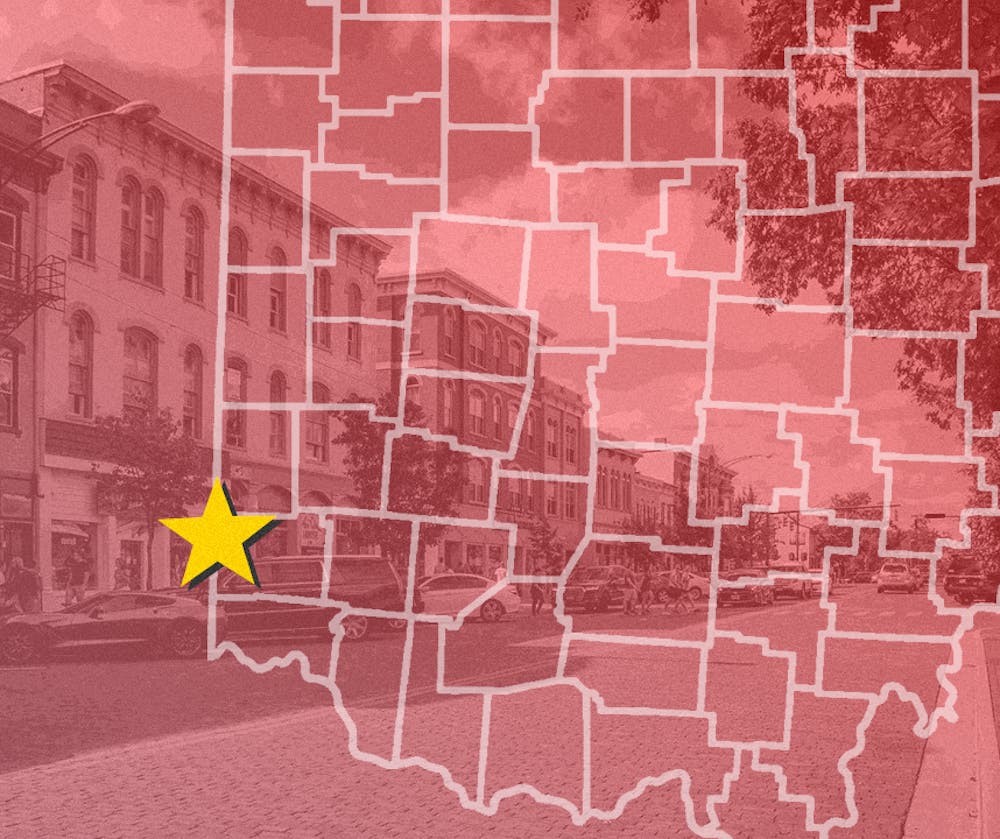Miami University representatives Jayne Brownell and Kimberly Moore spoke to City Council members about the university’s plan for the fall semester during council’s Aug. 18 meeting.
Brownell, vice president for student affairs, and Moore, dean of students, explained that their plan is not perfect and subject to change.
“We are trying to be as flexible and adaptable as possible in a world where everything feels so uncertain,” Brownell said. “People are looking for certainty, and it’s more certainty than we can provide.”
Currently, Miami is planning to begin in-person classes on Sept. 21. Students have until the end of today, Aug. 21, to decide whether they will take their classes in-person, move classes completely online or defer a semester.
Brownell said during the meeting students would not be required to take a COVID-19 test before returning to campus.
“What it does is draw tests away from a community because you’re using these tests,” Brownell said. “It doesn’t have a great outcome, it isn’t necessarily covered by insurance, so it’s a financial burden.”
Brownell said instead that Miami, in conjunction with TriHealth, will be focusing on wide-net and surveillance testing.
“We test the symptomatic people first, then the next group around that is wide-net,” Brownell said. “So let’s say you have somebody who lives on the floor of a residence hall, then the wide-net is testing that whole floor.”
Surveillance testing will be more random and impact a larger population. For example, she said, Miami may test one fraternity a week or one athletic team a week.
Moore explained Miami will utilize both quarantine and isolation to prevent the spread of the coronavirus. Quarantine will be used for non-symptomatic students who may have been in contact with someone who tested positive, while isolation will be for symptomatic students or those who have tested positive.
Off-campus students who are ordered to quarantine are expected to quarantine in their off-campus housing, Moore said. If students are unable to quarantine in their off-campus housing, Miami will work with them to provide an on-campus quarantine location.
According to Miami’s Healthy Together website, there are multiple on-campus quarantine and isolation spaces. Students who enter quarantine or isolation protocol will be given a room assignment based on availability.
Enjoy what you're reading?
Signup for our newsletter
Should students fail to comply with Miami’s social distancing requirements or mask mandate, Moore said they could be charged with failure to comply and endangering health and safety through the Office of Community Standards.
If found responsible for violating Miami’s coronavirus guidelines, students could be suspended from the university and sent home. As of Aug. 18, Moore said 30 students were already going through the university’s disciplinary process.
“The code of conduct applies no matter where a student is,” Moore said.
During the meeting, council also passed an ordinance that would ban gatherings of more than 10 people. Violations could result in a $500 fine the first time or $1000 for repeat violations.
Moore said that in order for the university to discipline students, they must be reported to Miami for not following guidelines.
“We are fully prepared to hold accountable students who do not meet the expectations set for them either by code or by pledge,” Moore said.
Brownell said students will be required to take an education module to inform themselves about the coronavirus and its symptoms.
Brownell said Miami’s decision to bring students back to campus is not certain.
“While we are certainly hoping, we are all hoping that students are able to return [to] on-campus instruction Sept. 21,” Brownell said, “that is not a given.”
The next City Council meeting will be streamed on YouTube at 7:30 p.m. Tuesday, Sept. 1.




